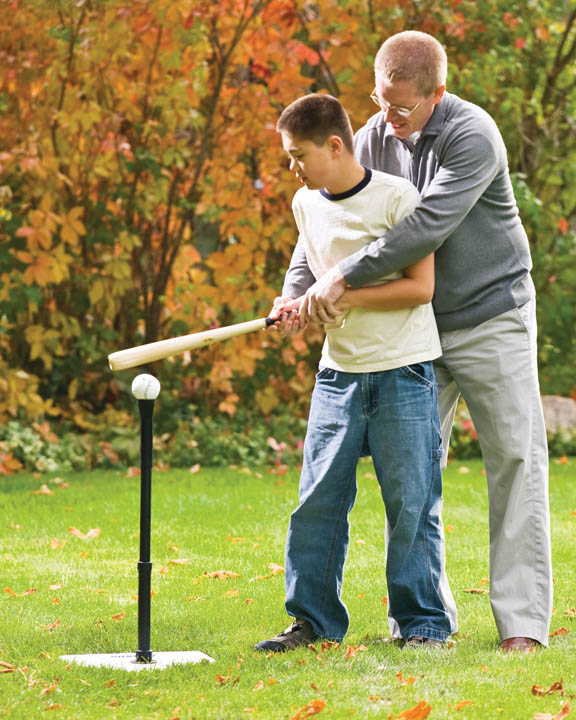 This family night lesson is designed to help older children and teens to become the very best they can become. They will become motivated to do their best in their chosen tasks, rather than rushing through something to get it done. The materials are adapted from Ed J. Pinegar and Richard J. Allen, from a forthcoming book called, “What We Need to Know and Do.
This family night lesson is designed to help older children and teens to become the very best they can become. They will become motivated to do their best in their chosen tasks, rather than rushing through something to get it done. The materials are adapted from Ed J. Pinegar and Richard J. Allen, from a forthcoming book called, “What We Need to Know and Do.
Learn to plan a family night.
Make a poster with the word excellence in the center. Circle the word. Draw lines from the circle going outward. You’ll need ten lines. Then make pretty word strips with the following words, one word or phrase per strip:
- is a state of mind
- is rooted in principle
- is balanced
- is realistic
- is measurable
- is resourceful
- is teachable
- is tireless
- is resilient
10. teaches others
Make a copy of the following handout from Ed J. Pinegar and Richard J. Allen, excerpted from a forthcoming book called, “What We Need to Know and Do. Cut the numbered items apart and clip the explanation to the phrase wordstrip. Place these in a box or bag.
When the lesson begins, ask each family member to write down three things they do extremely well. Encourage family members to add two more things to each person’s list. Remind them to only say kind things.
Ask them how they became good at these things and how it makes them feel to be skilled at them. Is there a purpose or benefit to doing something really well, as opposed to doing it badly?
Give your family two boxes of items that can be used to make something. These can be random items, such as small boxes, ribbon, and old magazines. Each person can have his own boxes or the family can work together as a team. Ask them to open one box and create something in three minutes. Then have them open the other box and take as long as they’d like. Tell them to do their very best work on each box. Afterwards, help them discover how much nicer the finished project is when they take their time, plan, and work carefully. Ask them to write, on the paper where they wrote things they’re good at, one thing in their life that would be better if they strove for excellence in it, instead of just rushing through it. Invite them to list why it would be better and then to make a plan for excellence. You might also want to choose a family project—something you can strive for as a group in which to achieve excellence.
Set out the poster you made earlier. Have each person take turns drawing out a clipped set. Have them glue or attach the phrase to one of the lines on the poster and then read the explanation. Discuss each one, and apply it to the family project or invite family members to apply it to their own project.
Read the following story to your family:
“This philosophy of excellence was demonstrated by the artist Whistler, who once painted a tiny picture of a spray of roses. The artistry involved was magnificent. Never before, it seemed, had the art of man been able to execute quite so deftly a reproduction of the art of nature. The picture was the envy of the artists who saw it, the despair of the collectors who yearned to buy it for their collections, but Whistler refused steadfastly to sell it.
“For,” said he, “whenever I feel that my hand has lost its cunning, whenever I doubt my ability, I look at the little picture of the spray of roses and say to myself, ‘Whistler, you painted that. Your hand drew it. Your imagination conceived the colors. Your skill put the roses on the canvas.’ Then,” he said, “I know that what I have done I can do again.”
Then he gave us a great philosophy of success. He said, “Hang on the walls of your mind the memory of your successes. Take counsel of your strength, not your weakness. Think of the good jobs you have done. Think of the times when you rose above your average level of performance and carried out an idea or a dream or a desire for which you had deeply longed. Hang these pictures on the walls of your mind and look at them as you travel the roadway of life.” (Sterling W. Sill, “Great Experiences,” Ensign, Jun 1971, 43.)
Ask your family to think of something they could put in their rooms or somewhere else important to them that would remind them of how much they are capable of. If they don’t feel they’ve created something like that yet, encourage them to begin working on it. The item doesn’t have to be a painting or a poem. They might want to take a picture of something they’ve done or hang a picture of them doing something special. For instance, a teen who is really good with small children might frame a picture of herself playing with a child. A child who has a garden might want a photo of her garden.
They might also want to create something to remind them of something they want to excel in. This can serve as a reminder of the goal they set earlier in the lesson.
Finish off by making something as a family and trying to do it as well as possible—baking and decorating cookies to eat and to give away, for instance.
